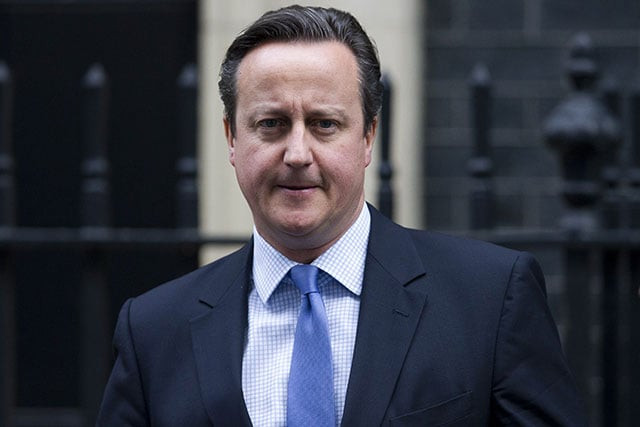Cameron delays trip to Saudi Arabia: report
Saudi Arabia's execution of Sheikh Nimr al-Nimr has angered Shias across the Middle East

PHOTO: AFP
Saudi Arabia's execution of Sheikh Nimr al-Nimr has angered Shias across the Middle East and caused a major diplomatic row between revolutionary, mainly Shia Iran and Saudi Arabia's conservative Sunni monarchy.
Action and reaction: Shia cleric’s execution leaves leaders divided
Saudi Arabia, Bahrain and Sudan broke all ties with Iran and the United Arab Emirates downgraded its relations on Monday after the Saudi embassy in Tehran was stormed by protesters. Kuwait recalled its ambassador to Iran on Tuesday.
The Times reported Cameron had been due to visit Riyadh in the coming weeks as part of a tour of Gulf states, but that the trip would not go ahead until March at the earliest.
A spokesperson for Cameron would not confirm that a trip to Saudi Arabia had been planned or delayed due to Nimr's execution.
Instead she said he was focussed on his plan to renegotiate Britain's relationship with the European Union ahead of a membership referendum due by the end of next year.
"We don't confirm the prime minister's travel plans in advance. Securing reforms to the UK's relationship with the EU is a government priority and we would expect the prime minister to continue engaging with European leaders over the coming weeks," she said.
Shias protest across country over Saudi cleric execution
The British government has previously come under pressure over human rights issues in Saudi Arabia, considered one of its closest military allies in the Middle East. Cameron's spokesperson said on Monday that Britain opposed the death penalty under any circumstances.



















COMMENTS
Comments are moderated and generally will be posted if they are on-topic and not abusive.
For more information, please see our Comments FAQ